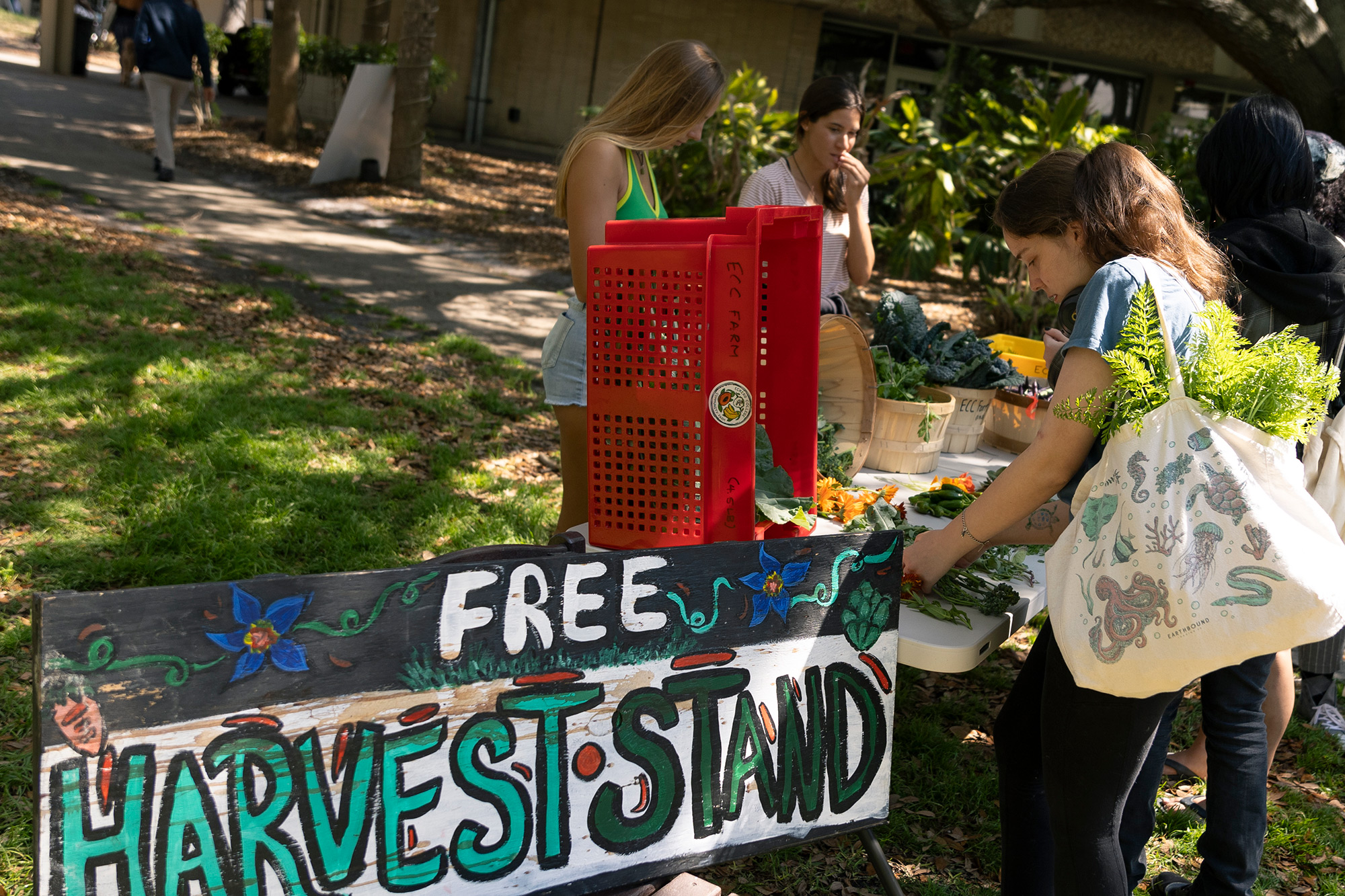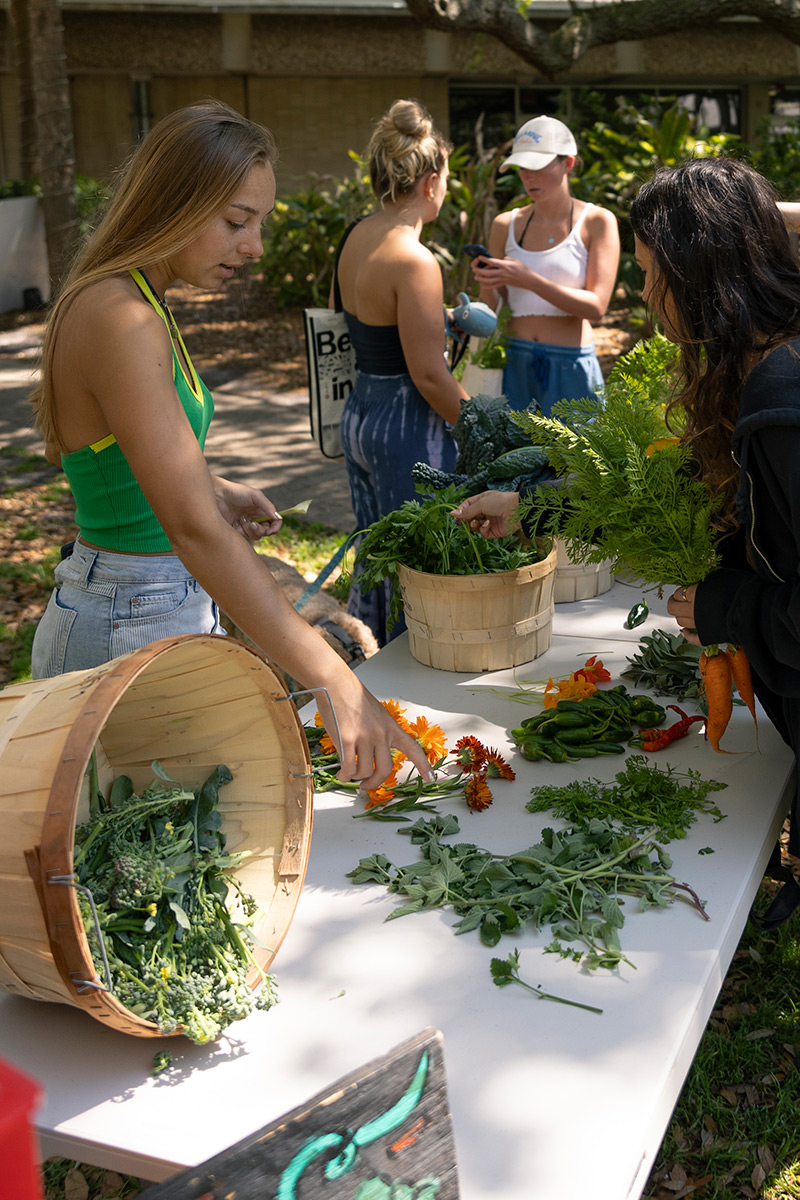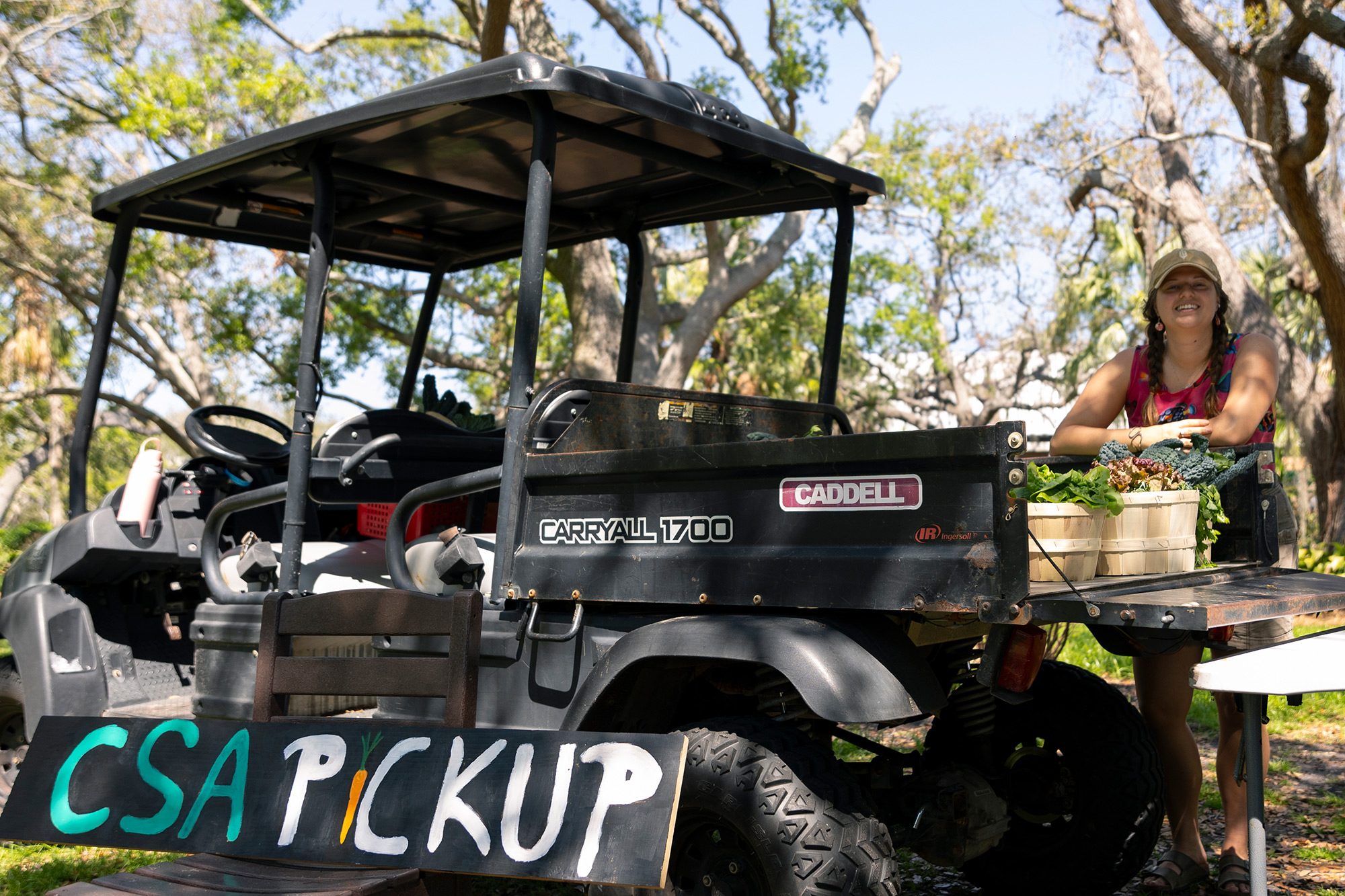Sarah Bartel used the tomatoes and peppers that came in her small Eckerd College Community Farm “Community Supported Agriculture” box to make salsa from scratch.
The administration and operations coordinator in Eckerd’s Executive and Continuing Education Division was one of 20 lucky lottery winners to opt in to a pilot subscription service that delivers fresh produce every Thursday for six weeks for the low price of $15 to $25 a week.
“It’s of vital importance that we have fresh food that we can identify the source of and that we know how to sustainably and organically grow it,” Bartel explains as she picks up her fourth week’s haul of lettuce, peppers and tomatoes. “Signing up for the lottery was a no-brainer because it sounded like a fabulous way to support Eckerd and all the work students put into the farm.”
The CSA program (also called veggie subscription boxes), launched in February, is an extension of the farm’s commitment to feeding the Eckerd community while educating its students. Student farmworkers also sell vegetables and herbs to the campus cafeteria; operate a free Thursday harvest stand where they give away pounds of produce to students, faculty and staff; and allow all people on campus to pick their own food from two garden beds designated as the U-Pick area.
“Since the very beginning of the whole farm project, we’ve been trying to think through what are the best ways to distribute the produce to as many people on campus as possible,” says Environmental Studies Instructor/Internship Coordinator and ECCF Faculty Director David Himmelfarb, Ph.D. “So our first stop was direct marketing to the cafeteria, because that’s where most students eat. But over the years, we’ve been experimenting with different ways of doing things.”
Superfans have been flocking to the campus’s Thursday free harvest stand for a year now, Himmelfarb says, and the demand led them to the idea of starting the CSA boxes. More than 60 students, faculty and staff applied for the 20 slots. Himmelfarb says the program administrators are already talking about expansion to up to 40 next year.
“More people want food sourced from places and people they trust,” Himmelfarb explains. “And there’s no farm that is more transparent and direct than ours. At any point in time, anybody can peek in our shed, they can talk to our farmers, they can talk to us, they can participate and find out exactly how we respond to the pressures of pests or fertilizer or things like that. In fact, because we’re an educational institution, our job is to educate people on what we do.”
Amelia Swiecki, a sophomore environmental studies student from Crystal Lake, Illinois, has farming in her lineage—her mom lived on a farm in Poland—and now it’s on her resume as the CSA program manager.
“It’s really, really fun to see the people come back week after week and tell us what they made with the produce,” Amelia says. This week’s large buckets, costing $25, have lettuce, kale, cilantro, broccoli and cactus—a special treat she prefers to eat cooked in tacos.
“It feels good to be a part of something that is providing good food to the community. I want to run my own CSA someday, so this is a great experience,” she says.
First-year students Isabella Shenouda and Crow Holland make their way to the free harvest stand every week in search of snacks for their pets and themselves. Isabella’s yellow-bellied slider turtle, Mango, was rescued from a turtle survey done with the Herpetology Club. Because his is an invasive species, he needed to be removed from the wild. Mango enjoys fresh greens from the harvest stand just like Crow’s cat, Matsy, satisfies her catnip fix there. “It’s really great to have this resource,” Crow says. “Matsy loves fresh catnip, and I take the [pole] beans as a healthy snack.”
















